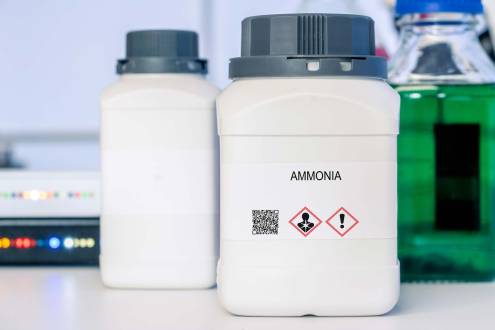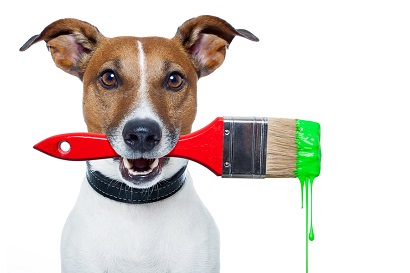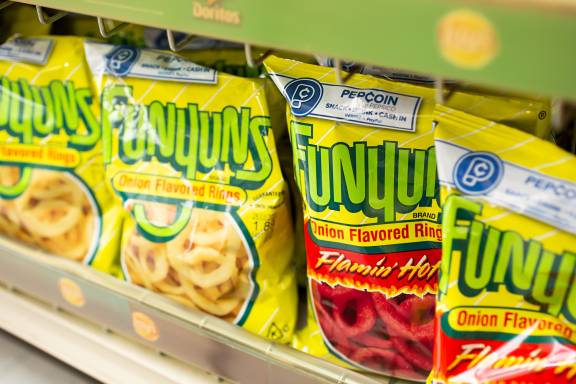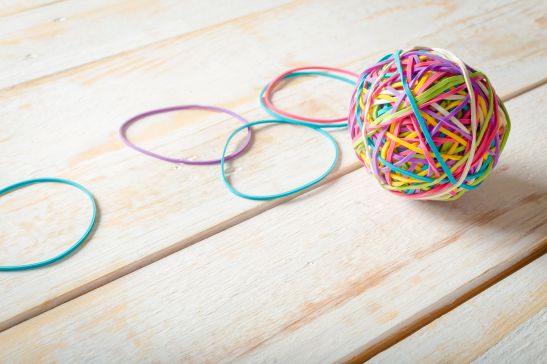Connect with a verified veterinarian in minutes. Licensed vets are available 24/7 to answer your questions. No need to worry about your furry family member.
Many household chemicals, such as ammonia, are used to keep our homes clean. However, some dogs may accidentally eat ammonia or other products. It’s possible that ammonia was used to clean up a mess, and some of the liquid was on the carpet. All it takes is for your dog to come along and lick the carpet or flooring and ingest ammonia. But what happens if a dog eats ammonia?
Has your dog eaten ammonia? Are you worried that the ammonia will make your dog sick? If so, you’ve come to the right place. We understand it can be scary when your dog eats something like this.
We’ve gathered information about ammonia and whether it can make a dog sick. Let’s get started!
What is Ammonia?
Ammonia is a household cleaner that’s usually in liquid form. It contains nitrogen and hydrogen and is often called a natural cleaner. Ammonia has a very overpowering smell that can cause your eyes to tear and your nose to run. Even so, ammonia is a great household cleaner.
Ammonia is great at breaking down oils and stains. It can even break down the grime in tubs, toilets, sinks, and the gunk on tiles. Ammonia can also be used to clean the kitchen, wine stains, upholstery, carpets, and glass.
While ammonia is a great cleaner when used as directed, what happens if a dog eats ammonia?
Ammonia & Dogs
Unfortunately, ammonia is toxic to dogs and can even cause death to our canine companions.

Review symptoms, medications & behavior to keep your pets healthy with a Vet Online in just minutes.
Ask a Vet Live NowSymptoms of Ammonia Ingestion in Dogs
You may notice these symptoms if your dog has eaten ammonia:
- Excessive drooling
- Vomiting (may include blood)
- Diarrhea
- Seizures
- Coma
- Lethargy
- Severe irritation of the mucus membranes (mouth & esophagus)
- Excessive thirst
- Panting
- Depression
- Inability to get up easily
- Death
If you notice any of these symptoms in your dog, call the vet immediately. This is an emergency.
Note: The first signs of ammonia toxicity may take up to 12 hours or more to appear. Do not induce vomiting if your dog has eaten ammonia, unless directed to do so by the vet.
Treatment of Ammonia Ingestion in Dogs
The vet may induce vomiting and use activated charcoal to remove the ammonia from your dog’s system. In some cases, it may also be necessary to pump your fur baby’s stomach to remove the toxin.
The vet may then give your dog an IV with fluids to flush the ammonia from your dog’s system and to treat dehydration. They will also give your canine companion medications that protect the lining of the intestines and the stomach from burning and other symptoms.
Your dog may need to be hospitalized until he’s in stable condition. The vet will also monitor your fur baby’s symptoms during this time and treat them as needed.
The prognosis is best for dogs who receive prompt medical treatment after ingesting ammonia. In the future, it’s best to keep ammonia and all household chemicals out of your dog’s reach. You’ll both be happier for it!
Connect with a verified veterinarian in minutes. Licensed vets are available 24/7 to answer your questions. No need to worry about your furry family member.

Tom
Tom has always loved to write since he was little - he wanted to be either a writer or a veterinary doctor, but he ended up being a professional writer while most of his works are based on animals. He was born in San Francisco but later moved to Texas to continue his job as a writer. He graduated from the University of San Francisco where he studied biotechnology. He is happily married and a soon to be father!
Review symptoms, medications & behavior to keep your pets healthy with a Vet Online in just minutes.
Ask a Vet Live Now





